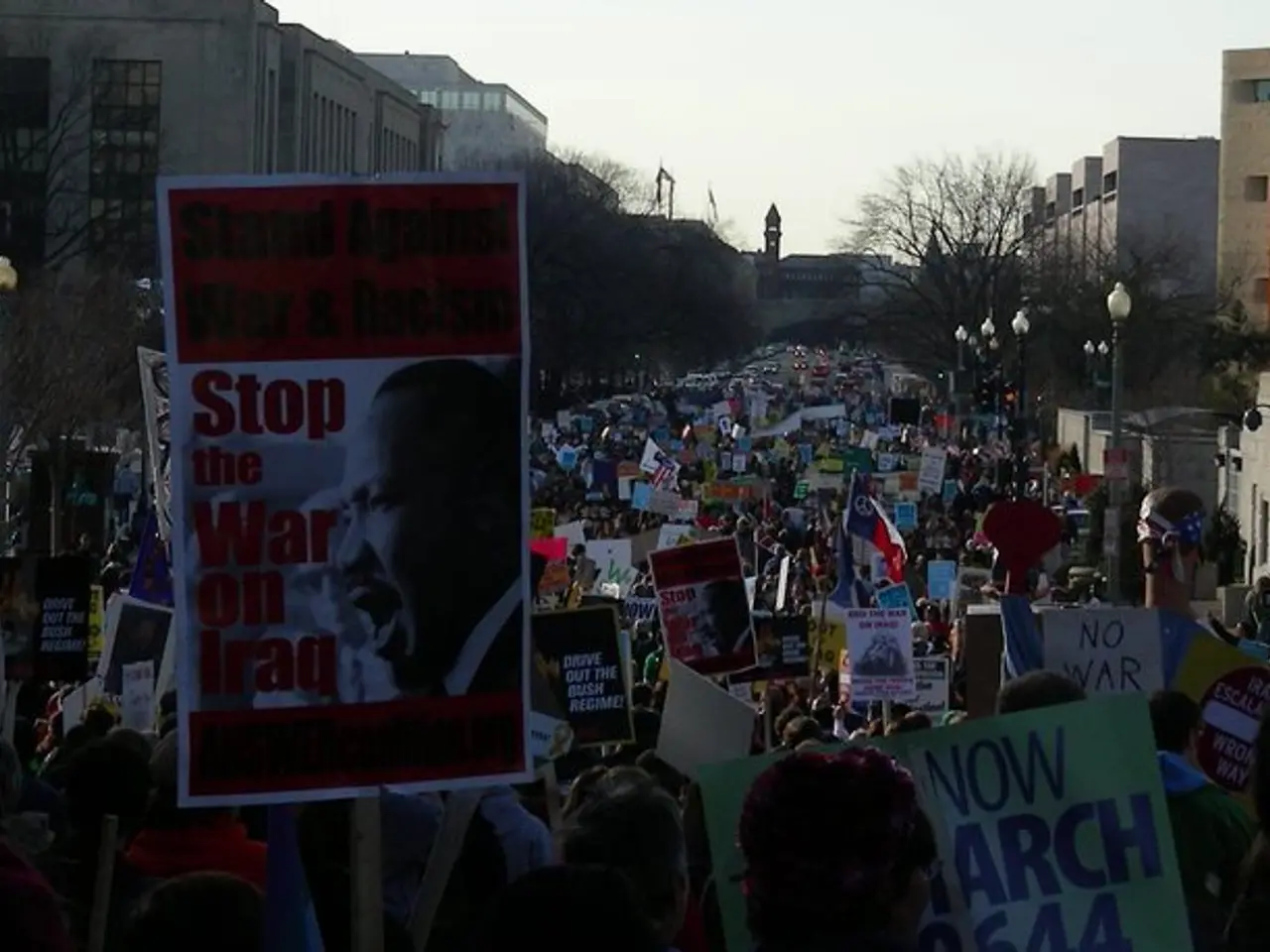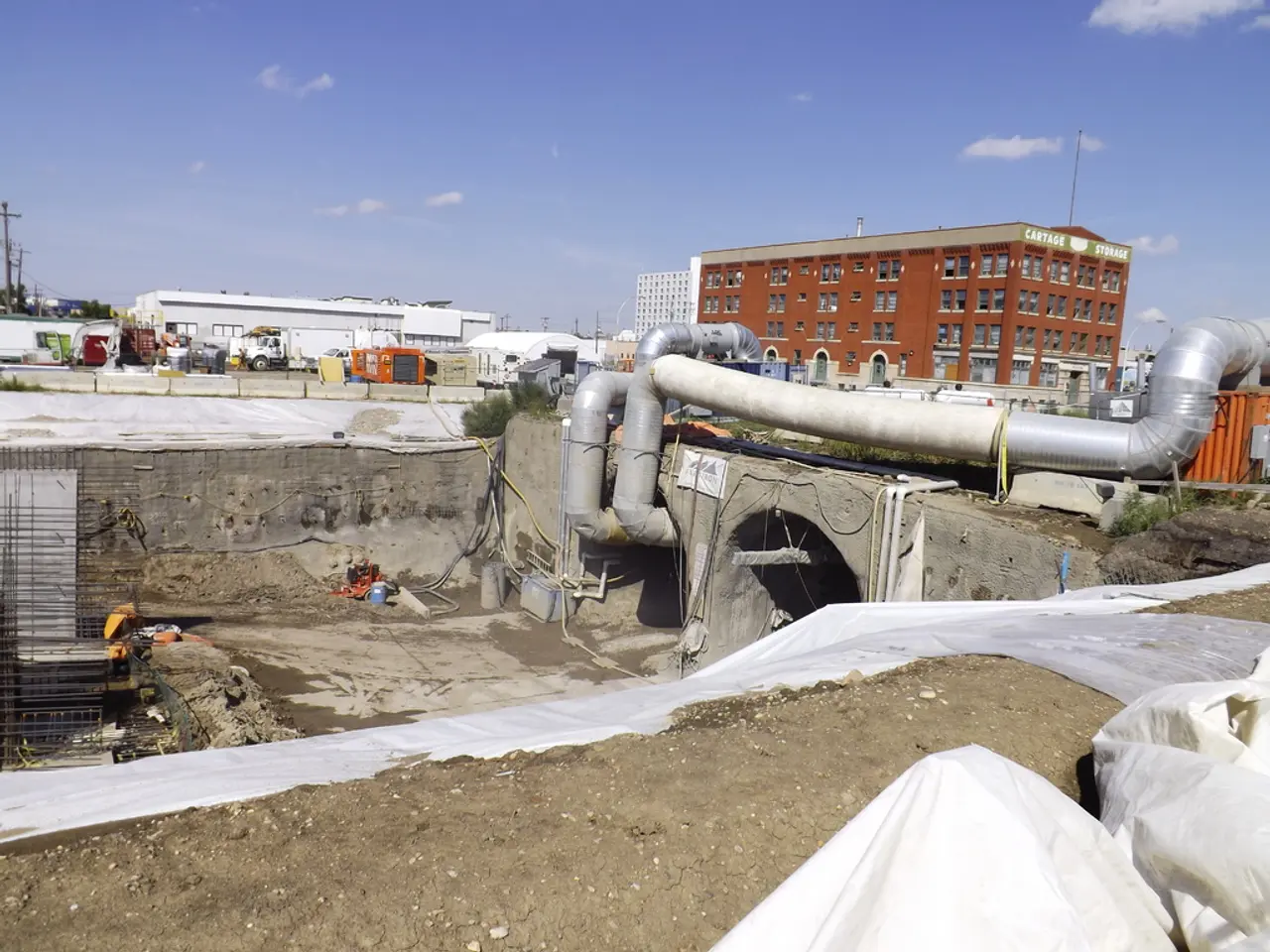Maharashtra's New Public Security Law Stirs Debate Over Potential Infringement on Citizen Rights
**News Article: Controversy Surrounding the Maharashtra Special Public Security Bill**
The Maharashtra Special Public Security Bill (MSPS), initially proposed in the last Monsoon Session, has been revised and is set to be tabled in the upcoming session. The revised draft, finalized on June 26, 2025, aims to combat urban Naxalism by focusing on organizations involved in such activities rather than individuals [1][2][3]. However, despite these changes, the bill remains a subject of controversy, with opposition parties and civil society groups expressing concerns about its potential to suppress dissent and infringe on civil liberties.
Teesta Setalvad, secretary of Citizens for Justice and Peace (CJP), has expressed concerns about the bill's broad and vague provisions, stating that they raise concerns about unnecessary overreach. Setalvad criticizes the bill for targeting farmers, workers, citizens, student movements, political education, the political opposition, and grassroots activism, while ignoring violent far-right extremism and vigilantism [2]. Activist Teesta Setalvad points out that under the current regime, farmers, protesting workers, Adivasis fighting for land rights, young Muslim student leaders, and protesters have faced criminal charges [3].
Independent YouTubers, activists, authors, and others are now seen as threats under the current regime, according to Setalvad. Uddhav Thackeray, leader of Shiv Sena (UBT), spoke at a rally against the MSPS, stating that the bill has provisions for stringent action to suppress dissident voices [3]. Thackeray refers to past misuse of similar laws, such as labeling peaceful protesting farmers as Naxalites in 2017-18, as a concern for the bill's potential to suppress honest social movements under the guise of national security [1].
The revised draft of the MSPS Bill includes three key procedural changes: only organizations, not individuals, can now be declared unlawful; any such declaration must be approved by an Advisory Board; and investigations into alleged offences under the Act must be conducted by officers of the rank of Assistant Commissioner of Police (ACP) or Deputy Superintendent of Police (DySP) and above [1]. However, there are concerns about the independence of the Advisory Board, with fears that it may be filled with people who share the government's mindset and will likely rubber-stamp executive actions [1].
Opposition parties, including NCP (SP), Congress, and Shiv Sena (UBT), have raised concerns over the revised draft, calling for public hearings, clearer definitions, and stronger safeguards to prevent misuse [1]. On June 30, 2025, thousands gathered in Mumbai's Azad Maidan to protest against the MSPS [3]. The bill's debate in the legislature is a test for Maharashtra's democratic institutions and raises broader questions about the balance between security and civil liberties in India.
References: [1] https://www.thehindu.com/news/national/maharashtra/msps-bill-debate-in-legislature-a-test-for-maharashtras-democratic-institutions/article65094633.ece [2] https://www.thenewsminute.com/article/maharashtra-government-targeting-rights-activists-opposition-parties-and-civil-society-groups-184742 [3] https://www.ndtv.com/india-news/thousands-protest-against-maharashtra-special-public-security-bill-in-mumbai-s-azad-maidan-2934915
The renewed controversy surrounding the Maharashtra Special Public Security Bill (MSPS) extends to discussions about food and education, as activists such as Teesta Setalvad worry about its potential impact on student movements and political education. The bill's critics, including opposition parties and civil society groups, have raised concerns about its potential to suppress dissent, infringing on civil liberties, and even targeting those passionate about social activism - a matter also highlighted in general news reports.








